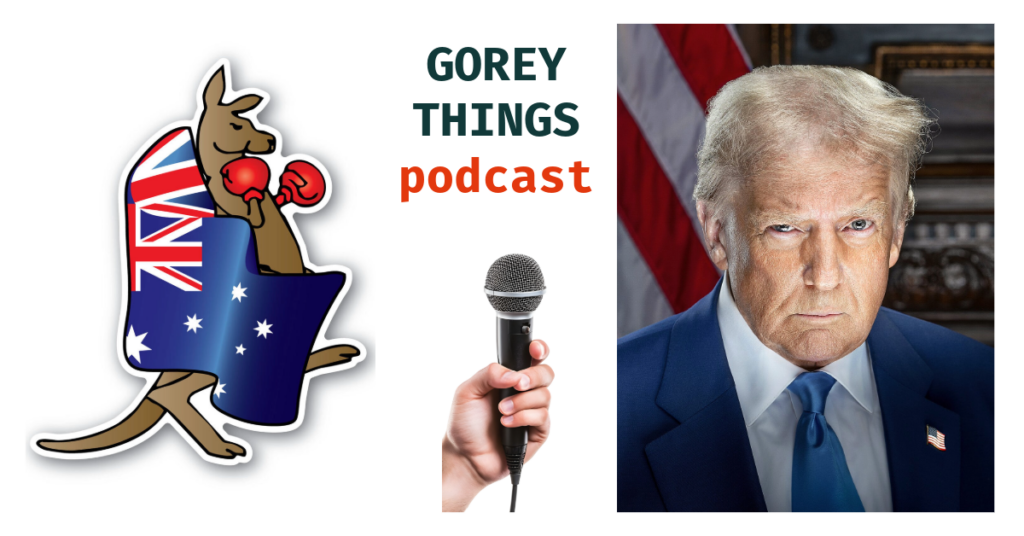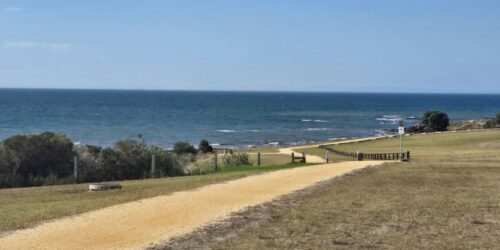Trump tariffs and Australia

Today I’m talking about Donald Trump and tariffs. What do they mean for the American economy? Should Australia care and should we adopt similar policies?
I don’t necessarily have the answers, but it’s an important discussion.
I’ll start with a couple of disclaimers. Firstly, I’m not a supporter of President Trump, and if I had the opportunity to vote for him, I wouldn’t. Also, I’m not an economist nor an academic. I have an interest in Australian politics and history, and as a former journalist, I follow current events around the world.
Here’s a transcript of my podcast, recorded and transcribed using Voicenotes AI (all original material):
Donald Trump is not a conservative, let’s be clear about that. Political conservatism is defined as a cultural, social, and political philosophy that emphasises the preservation of traditional institutions, customs, and values.
Trump is a radical disruptor, not a conservative.
I’m not particularly opposed to disruption in politics, it can sometimes be a good thing. But in my opinion, Trump has overstepped the mark by picking fights with allies, which he had no clear mandate to do, slashing essential government services, and his cruel and vindictive treatment of many people.
Trump’s pitch to take over Canada is like Australia claiming sovereignty over New Zealand, for which we arguably have a greater historical claim.
Trump’s audacious bid to bully Denmark into selling Greenland is like Australia blockading New Caledonia until the French hand it over.
As for tariffs, the jury is out on whether these are going to be good or not for typical Americans.
Economists typically say that tariffs lead to higher consumer costs and inflation.
Certainly, if you look at the recent history of free trade in Australia, consumers have benefited from cheaper products like clothing, vehicles and electrical items compared with manufacturing them here.
Free trade has also benefited our primary producers by opening up markets where their cheaper cost of production competes favourably against domestic production in other countries, such as dairy into Europe, lamb into America, and wine across the globe.
The downside of free trade is that a nation inevitably surrenders some or all of its capability in areas where they can’t compete commercially with cheaper overseas production.
For Australia, that’s why we no longer mass produce things like textiles and automobiles.
Another downside risk is that by depleting capability in manufacturing, we’re exposed if a new war breaks out in our region. Australia ramped up manufacturing quickly in World War II, it’s less likely we could do the same today.
It’s why governments have been keen to maintain defence manufacturing in Australia, why we required France to build submarines here. We’ve now outsourced the submarines to the United States while paying compensation to the French. Go figure.
Another area of defence vulnerability is fuel refining. We currently have just two major refineries which only meet half our needs.
Therefore, it’s fair to say that protectionism ensures a more diversified industrial base than free trade, and strengthens a nation’s defence capability.
I’ve been personally impacted by how Trump’s tariffs have rattled world markets, seeing my superannuation nest egg diminish by 10% in two months.
I’ve seen some commentary out of the United States, from people who support Trump, there will be short-term pain for longer-term gain. From an American perspective, I think that’s probably true and we should know if it works for them within two years.
If higher consumer costs are offset by massive jobs growth in manufacturing, blue-collar Americans might be better off, not just the oligarchs.
Historical tariffs in Australia
The argument between free trade and protection was fierce in Australia from the 1870s to the 1980s. It was one of the defining issues when we federated in 1901.
Before that time, tariffs existed between colonies. Victoria was generally an advocate for protection to safeguard manufacturing, while New South Wales leaned more to free trade because of its stronger agricultural base.
The first two Prime Ministers of Australia were protectionists, Edmund Barton and Alfred Deakin, although Deakin flipped from originally holding the opposite view. Incidentally, I’ve been reading his biography recently, and he was a fascinating and much underrated leader, who sadly died too young. That’s another story.
Our third Prime Minister and the first Labor PM, Chris Watson, supported protectionism and the White Australia Policy of the first two governments. The first free trader to lead the country was George Reid in 1904 with a minority government and his policies were mostly not implemented.
One of the strongest advocates for protectionism in later years was John McEwen, known as Black Jack. He was the Country Party leader from 1958 to 1971, Deputy Prime Minister and Minister for Trade, also briefly Prime Minister after the disappearance of Harold Holt, presumed drowned.
McEwen deftly supported free trade for Australian agriculture while seeking to protect manufacturing.
This policy pragmatism faded from public view and political favour in the 70s and 80s, despite an unlikely alliance emerging between fringe politicians, such as Bob Katter, and some unions.
There aren’t many good things to say about Donald Trump. Follow the news and social media to see what he says and does, and much of it is appalling from the point of view of anyone who respects common decency and the rule of law.
I’m not prepared to criticise him yet though, over his tariffs policy, except to note that it’s erratic. Maybe after the 2nd of April it’s worth another look, Trump’s so-called liberation day, when reciprocal tariffs against countries including Australia are due to be introduced.
Australia needs to be agile and measured in how we respond.
I don’t mind that we’re now debating issues that have previously been bipartisan and largely silent for decades, such as trade, defence and immigration.
However, it needs to be a respectful discussion with the national interest at its heart.
That’s probably too much to hope for in the age of social media and sound bites.


